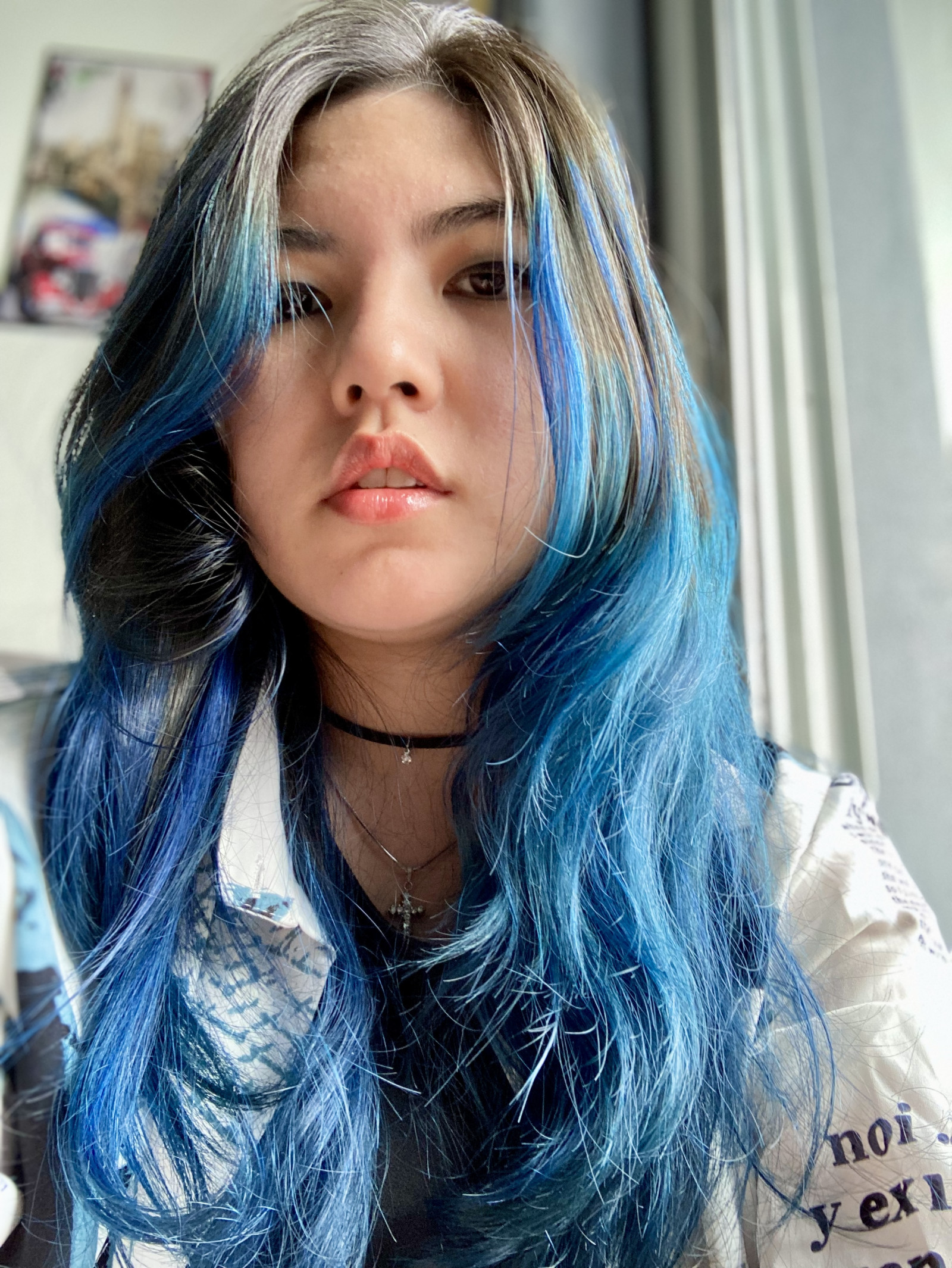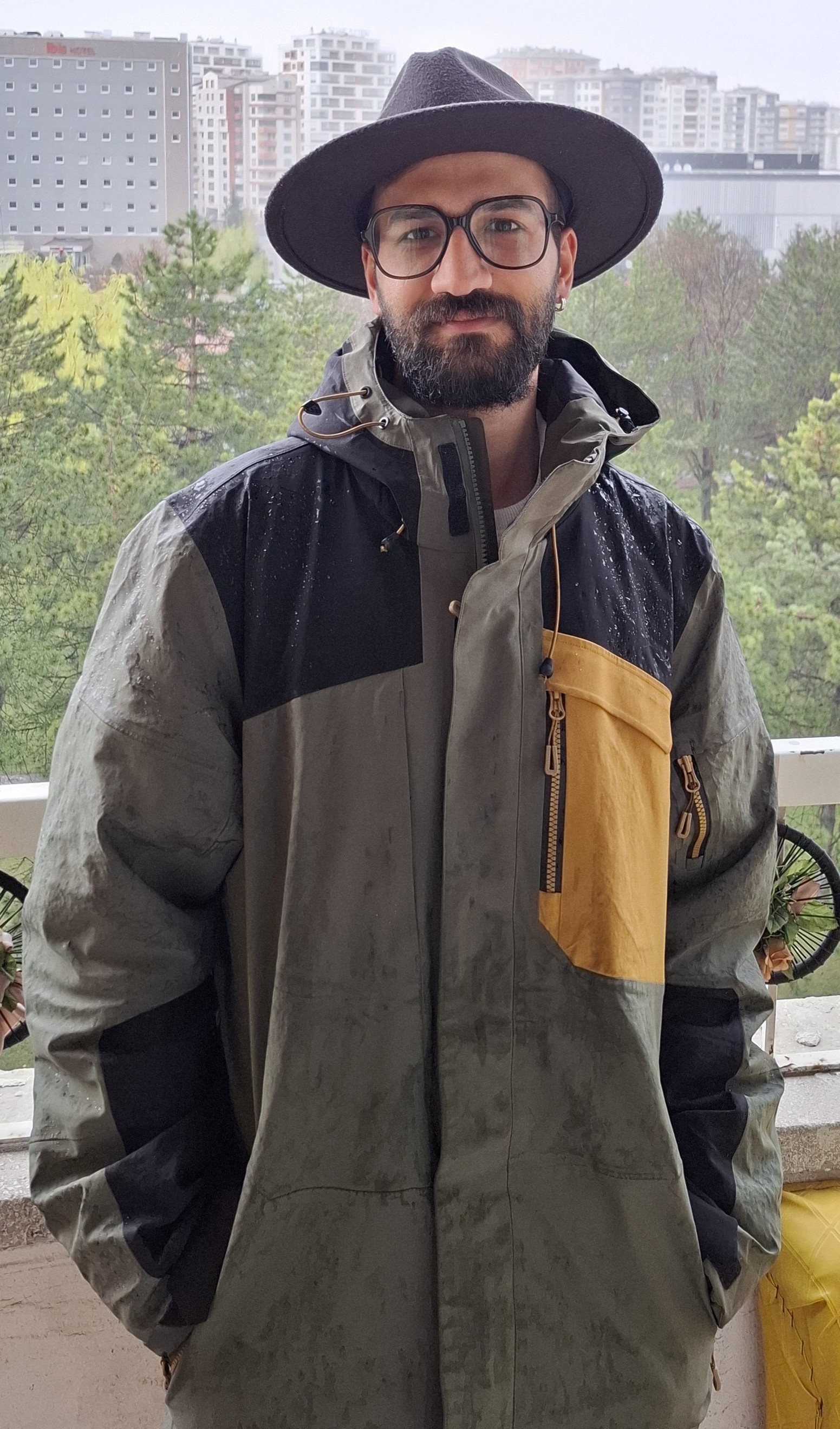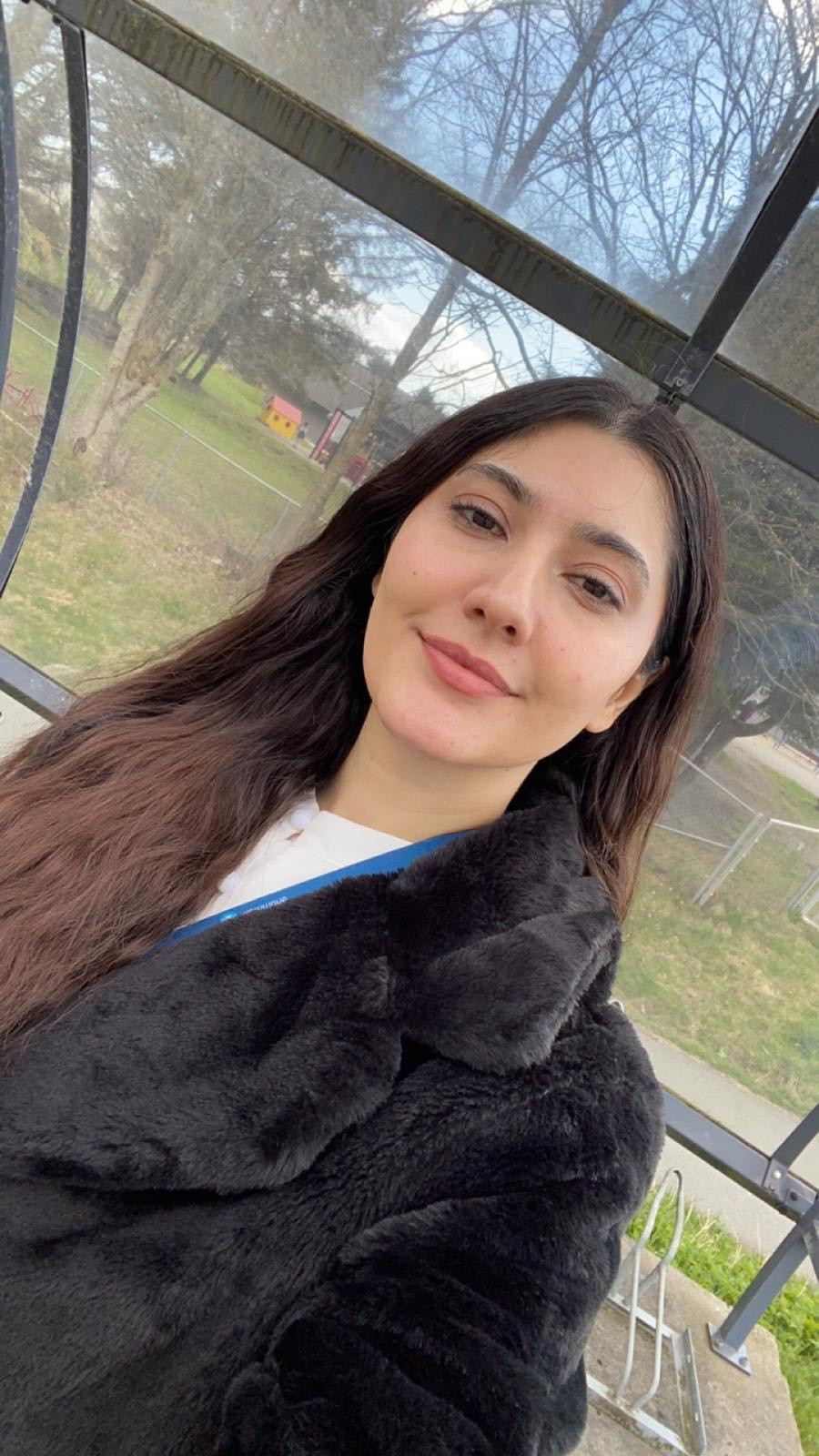When I was twelve, my mother banned music in our house.
I bid silent goodbyes to the spinning vinyl records, oldies radio channels, and music streaming software. Mum had movers cart her gleaming acoustic upright piano away. Anything that carried a tune, save for the morning birds in our taman, was decidedly outlawed when my sister, Aria, lost her hearing at five years old.
“No phones at the table,” Mum said and signed at the same time.
Aria—now in Primary 3—read Mum’s hands then flickered a glance at me.
I set my phone face down on the wooden tabletop as my mum took her seat. Then I brought a closed fist to my chest and guided it in a circle. Sorry.
Mum had always been strict about including Aria in our conversations, even in those that had nothing to do with her. Just the other day, she warned me about getting too close to a boy in my year. No dating, no paktor, until I was twenty-one. Like holding boys’ hands was the same as drinking alcohol.
“It’s for your own good, Celeste. And for your sister’s. You know I need your help around the house, that your sister needs you. You need to be there for her. You need to set a good example. Boys are a distraction, and they’ll only teach you how to be selfish.”
All through her yelling, her hands moved in a relentless frenzy, shapeshifting rapidly and colliding with each other in the air so fast they blurred. Aria watched the whole thing from the living room sofa. There was a book in her hands, but she hadn’t turned the page in ages.
I put my hands up in surrender. Again, my fist floated to my chest, moving in its habitual circular pattern, the easiest way to cut her tirades short.
I watched from across the table as Mum cut into the steamed fish in the centre of the table. She dug out a huge chunk of pristine white flesh, prodded it carefully to ensure it was free of fine bones, and set it on Aria’s plate. Then she spooned the ginger-soy sauce and coated it generously.
Aria signed a quick thank you, pressing her fingertips to her chin and bringing them outward.
Silence ensued, broken only by Aria’s spoon scraping the plate. It was a high-pitched grating sound, and Mum cringed every time it happened too. It seemed like Aria had forgotten that things like that made sound. The thought always made the rice taste like glue in my mouth.
Aria used to sing. She had the most beautiful voice. Even at two years old, she was memorising nursery rhymes and echoing whatever she heard on the radio. At four, she was performing for our relatives and friends. At five, she had her first solo in her kindergarten production of The Little Mermaid.
My sister and I used to stand on the arms of our living room chairs and sing our hearts out while Mum played the piano. She had taught us all her favourite songs from the 70s and 80s. I’d sing the harmony, usually just two notes or so higher. And I’d sing it softer, so it supported Aria’s bright vocals but never outshone them.
But it had been a long time since we were all in sync. The three of us were like jettisoned members of an orchestra, playing a tune from memory with the conductor nowhere in sight.
My phone vibrated on the table, making Mum and Aria glance up from their plates.
I swiped the TikTok notification away and set it back on the table face down. Silence returned, a sticky thing that coated our little family.
The fluorescent ceiling light above us buzzed incessantly. The fridge in the kitchen crackled and rumbled, then went back to its mechanical purring. And Aria’s silverware continued to scrape the floral ceramic plates.
I was just pulling a sharp fishbone out of my mouth when my phone buzzed again. I grabbed it and shoved it in between my thighs, afraid that Mum wouldn’t be so patient the second time around.
Mum’s silverware clattered onto the plate, a dissonant protest.
“Celeste, who’s messaging you?”
“No one.” Sweat dewed on the back of my neck, though it technically wasn’t a lie.
“Is it that boy again? The one we talked about?” she said, her hands creating subtitles for Aria.
“No,” I said. I made two little o’s with my fingers and shook them hastily in front of me. “It’s nothing.”
A beat of silence.
“Let me see it,” she said suddenly, opening her palm before me.
“I can put it in my bedroom,” I told her.
“I want to see it, Celeste.”
And there was that clench in her jaw that always set my teeth on edge—that and the throbbing vein in her forehead. I couldn’t have her looking through my phone.
My heart thumped unsteadily, and there was a dull roar in my ears. My fingers clenched and unclenched around my spoon.
She’d never asked for this before. Last week, she’d asked to see my messages—all of which I had deleted of course. I’d also deleted TikTok before handing the phone to her. But I wasn’t prepared tonight. And if I tried anything under her nose right now, it would raise even more suspicion.
I was trapped, back pressed into the smallest corner. Aria stayed as still as a porcelain doll. The fluorescent lights were getting louder, now a swarm of bees in my head. Gingerly, I placed my phone in Mum’s outstretched hand.
She swiped down to see my notification history. I hoped she would be looking for WhatsApp or Telegram banners, and that she would just ignore the TikTok ones. But the gods were on vacation; my silent pleading went unheard.
When her eyes widened, I assumed she had found my TikTok profile. It was eight months old this week.
“Are you posting videos of you singing?” she asked, her voice rising by a whole octave. “Mum, it’s nothing. It’s just for fun.”
Aria looked between us and raised her hands, palms up to the ceiling. What is it?
It’s nothing, I signed back to her while keeping my eyes on Mum. Her throbbing vein was growing more prominent by the second.
“It says here that you have more than 127,000 followers?” She played one of my pinned videos, the one that had gone recently viral.
My singing voice tore through our house, bounced off the bare white walls. I was singing an indie-folk song in a deserted stairwell in Lot 10. When my voice climbed to the high notes in the chorus, my vocals leapt from landing to landing. The resonance in the stairwell seemed to make my voice float, and the haunting echo was almost ethereal.
Then, I saw Aria tilt her head in confusion and remembered that most of everything sounded like silence to her. And all the magic seeped out of my song.
Mum’s shock was wearing off. “How could you be so selfish?”
Hot tears welled up in my eyes. “I don’t do it at home. It’s only sometimes when I’m not with you or Aria.”
It felt like confessing to a cardinal sin.
Mum patted Aria on the head and signed, I’ll be in the kitchen, talking to your sister.
Then, she grabbed me by the wrist and yanked me off the chair.
When we were out of Aria’s line of sight, she said, “Do you have any idea how this is making your sister feel? You know how much she loved music. You know why we don’t turn on the radio, you know why we watch movies with closed captions, and you know why my piano is gone!”
“I wasn’t—”
“How could you do this to her? What if she found your account? What if she saw that you were getting famous for doing the one thing she loved more than anything in the world?”
“I didn’t mean—”
“I thought you cared about her. I thought you understood how hard it was, and how hard it still is for her. Clearly, I was wrong. Clearly, you think going completely deaf is just like walking in the park or getting the flu. Do you want to be sitting in her position?”
My chest tightened with each barrage of her words. They filled me up and wouldn’t go down.
“We agreed, Celeste. No music!”
“No, you decreed it, Mum,” I snapped.
“For Aria’s sake!” she spluttered.
I blinked away the tears. “You chose for all of us. I’ve seen on the internet how people in Aria’s condition can still enjoy music, like maybe at a high volume with headphones, and—” I cut myself off and clenched my cold fingers, afraid of what she would do. I never talked back like this.
But to my surprise, the tears gathering in her eyes fell, and she slapped a hand over her crying face and turned toward the sink.
“It’s not about the music, Celeste,” she finally said. “It’s about the singing. The first time she opened her mouth to sing after the meningitis, she looked so crushed I didn’t know what to do. She couldn’t hear herself sing anymore. Maybe if I’d taken her to the hospital sooner…”
“Or if I’d checked on her,” I said. “That’s what you want to say, right? Because she was sick when you were at work, and I was the only one at home.”
She gave me a sidelong look and just sighed.
In the silence of unspoken blame, she finally pulled out my phone again. “I want you to delete your account.”
My heart sank into my stomach. “What?”
I was getting almost 20,000 views per video. This was mine. She couldn’t do this. “Delete it. In front of me. Right now.” She held out the phone.
With shaky fingers, I found my account settings page, then the deactivate or delete button.
“Delete it,” Mum said. “Be a good sister.”
“When will you be a good mother again?”
She raised her palm, and it quivered in the air between us. I flinched, coiled like a spring.
“Celeste.” She said it like a warning. It didn’t sound like my name at all.
And with a single tap, everything I’d been building—all my song covers and encouraging comments—crumbled on that kitchen floor.
* * *
A couple of hours later, I slipped into the kitchen again. I hadn’t finished my dinner earlier, and now, my stomach was growling. All the lights had been turned off. Aria had probably gone to sleep in Mum’s room.
I found my half-finished plate in the fridge and stuck it into the microwave. Sunset orange light illuminated the space within as the plate revolved. The microwave hummed, quiet and proud. And in a voice that was small at first, I hummed in harmony to it, dancing from a higher harmony to a lower one.
Then I gasped in shock, seeing Aria’s sleepy face by the door frame. Sorry, I signed automatically.
Were you singing?
I hesitated and nodded, sinking onto the kitchen footstool. Pointing to the microwave, I sighed, The microwave sings too.
Aria stepped toward me and pressed her fingertips to my cheek. Her little fist made a circle at her chest. Sorry about Mum.
I willed the tears away. My eyes were sore enough. She’s right, I signed. I’m sorry for being a bad sister.
Aria shook her head slowly. Sing for me, she signed, then brought her fingertips to the top of my throat.
The tears came anyway as I set free a few notes, singing harmony to the microwave again. Aria smiled, feeling the vibrations where my voice box sat.
And I kept singing, filling the starving house with song even after the microwave beeped, hoping the music would seep through her fingertips.









